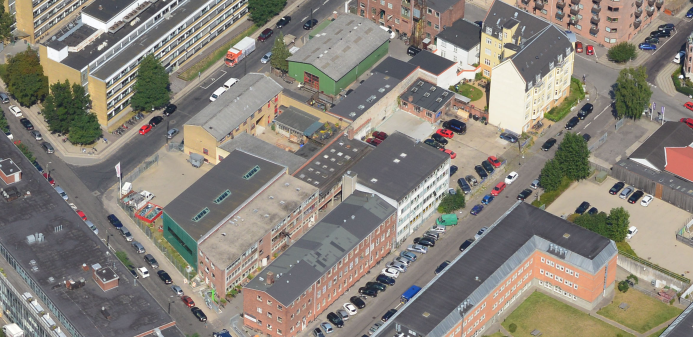As part of the recently launched demonstration project Smart City Accelerator, Center for Electric Power and Energy will test both the production and consumption of energy based on a peer to peer electricity market approach.
How much energy can be produced in a city, is it possible to archive energy transactions on a BlockChain and will a local and sustainable energy production have a positive social impact on a somewhat burdened neighborhood? Those are some of the questions researchers from Center for Electric Power and Energy (CEE), DTU Elektro will clarify in the demonstration project Smart Cities Accelerator (SCA).
In short the focus of SCA is to facilitate knowledge sharing and develop more sustainable solutions within smart city environments with a particular emphasis placed on traditional utility roles, e.g., with water and energy. The project focuses on urban areas in the Øresund region but the solutions are expected to be applicable in all other cities around the world
An urban energy community
"The SCA project allows us to gain insight in how we can optimize the energy system by exchanging data on both energy consumption and production of renewable energy in a urban environment"
Pierre Pinson, Professor at CEE
One of the demonstrations in the SCA project focuses on the EnergyBlock – a building block in the Copenhagen Nordvest district. The EnergyBlock serves as a physical platform for the CEE research related to the SCA project where CEE contributes with technical expertise in relation to both installations and market coordination. The specific demonstration is performed together with Copenhagen Solutions Lab.
Professor at CEE, Pierre Pinson is heading the CEE activities in SCA. The main focus of Pierre’s research in general is the mathematics behind new electricity markets that should be capable of comprising an increasing number of households obtaining their own solar panels, heat pumps, batteries and electric cars - thereby becoming both consumers and producers of energy – so called ‘prosumers’. Pierre is also an advocate for the term energy democracy and believes that a sharing economy system for electricity exchange is essential for developing the future sustainable energy system.
“The SCA project allows us to gain insight in how we can optimize the energy system by exchanging data on both energy consumption and production of renewable energy in an urban environment. The EnergyBlock is a perfect match for the purpose of our research allowing us to explore the potential of utilizing renewable energy sources and archiving activity logs to an energy BlockChain.
“It is absolutely key to have the consumer in focus when testing and demonstrating new methods for energy sharing. Based on experience from other projects with an energy community perspective motivation and a positive change in behavior are likely outcomes of the SCA project. Creating a sense of community in the neighborhood is not the main objective for CEEs research but it is a positive side effect of living greener,” concludes Pierre.
SCA will facilitate the development of greener solutions by combining seven vertical focus areas within the energy sector with four cross sectorial horizontal areas. The horizontal areas are anchored in strong research environments including data, behavior, law/regulations and learnings in the Greater Copenhagen area.

A view from the top: The EnergyBlock on Glentevej 7, 2400 Copenhagen NV as it looks today.